Transportation Commissioner Mingus Mapps believes the route to safer streets should begin with, “enforcement, penalties and public awareness regarding breaking traffic laws.”
As Portlanders reel from a spate of violent crashes that have claimed 11 lives so far this month (the most on record), I reached out to his office yesterday to see if he had anything to share with the community.
Today I heard back from his Senior Policy Advisor Shannon Carney.
Here’s what she said on Mapps behalf:
Hi Jonathan,
Thanks for the prompt. We were having conversations with PBOT even before this particular tragedy on what our office can do to alter the course of traffic violence trends as of late. Speed and impairment were factors in this fatality, unfortunately, we’re seeing from the data that this is increasingly the case here in Portland.
Given that, Commissioner Mapps feels that beyond PBOT’s efforts to increase speed cameras, the most effective immediate intervention is enforcement, penalties and public awareness regarding breaking traffic laws. It is also a necessity to expand PPB’s recently reinstated traffic unit as soon as possible. Finally, it’s critical to raise the community’s awareness of enforcement, which is something Commissioner Mapps plans to do through his own efforts.
Related, the bureau has also been able to work through many of the challenges to expanding the speed camera program, and we expect to add 19 new speed cameras throughout the city by the end of the calendar year. We will work with the bureau to see if speed cameras are a possible treatment for Chavez.
You asked about that stretch of road specifically. Per bureau protocols, PBOT’s traffic engineers and Vision Zero team have been out to assess the site of the traffic fatality. We don’t know yet their recommendations, but it’s safe to say that a reconstruction of the corridor would be significant project in the order of $50 million.
As you’ve noted in some of your posts, there’s a connection between the infrastructure investments that help make the traffic system safer here in Portland and the bureau’s funding situation. One example is PBOT’s quick build program, which is a key source for safety improvements in places that don’t have a large capital project planned. That program has been cut by nearly $1.5 million over the last several budget cycles due to its reliance on PBOT’s discretionary revenues.
If the bureau is forced to take the full $32 million cut in FY 23-24 that is currently projected, it may lack even the funds to match federal grants from programs like Safe Streets for All that can really move the needle on safety for corridors like Chavez. That would be a travesty given the unprecedented amount of funding available under the Biden Administration. It is Commissioner Mapps’ hope that over the next few months, Council will rise to the moment and ensure PBOT has the funds to address the hazardous conditions on Portland streets.
Best,
Shannon
Shannon Carney
Senior Policy Advisor
Office of Commissioner Mingus Mapps



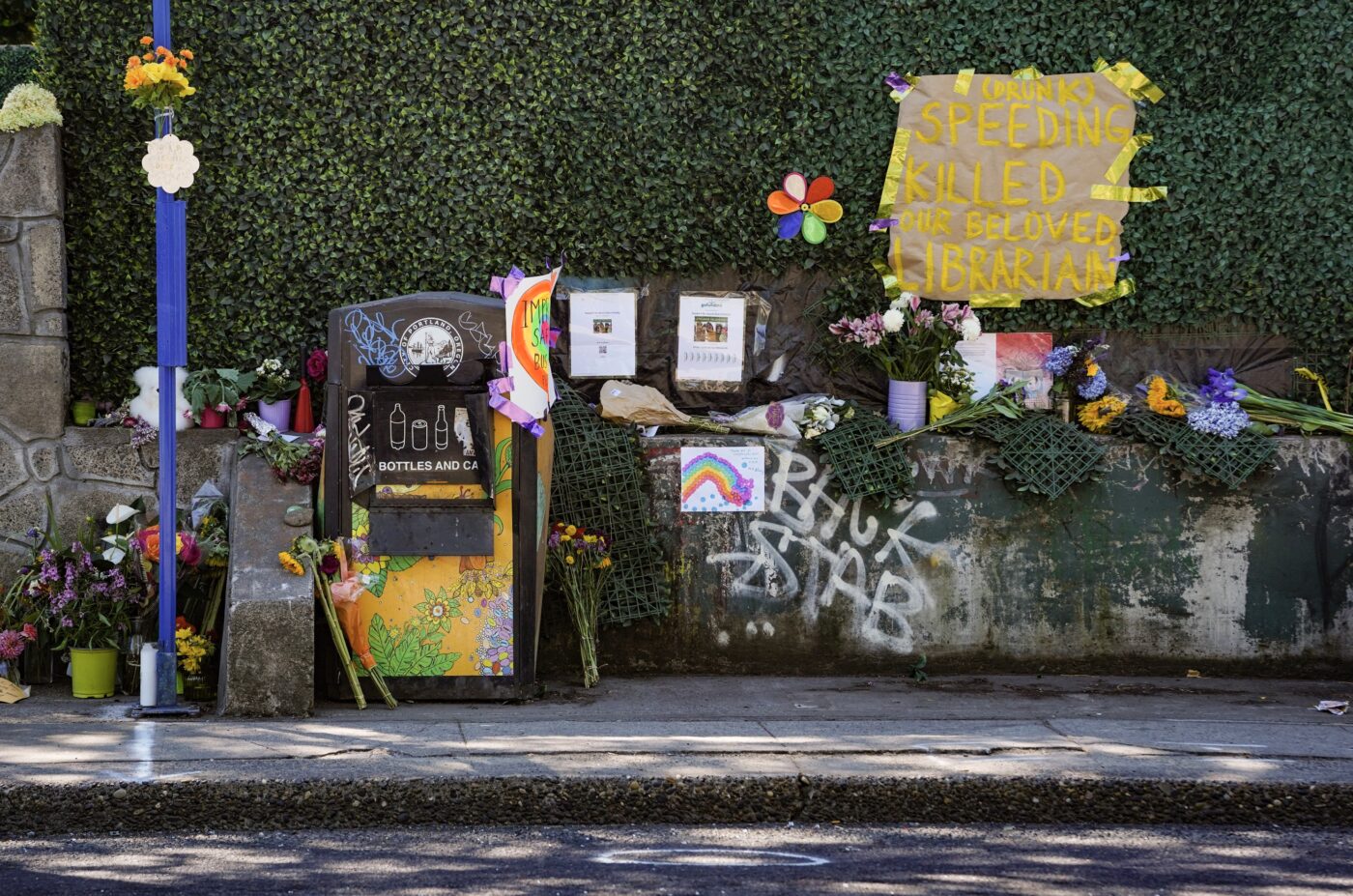
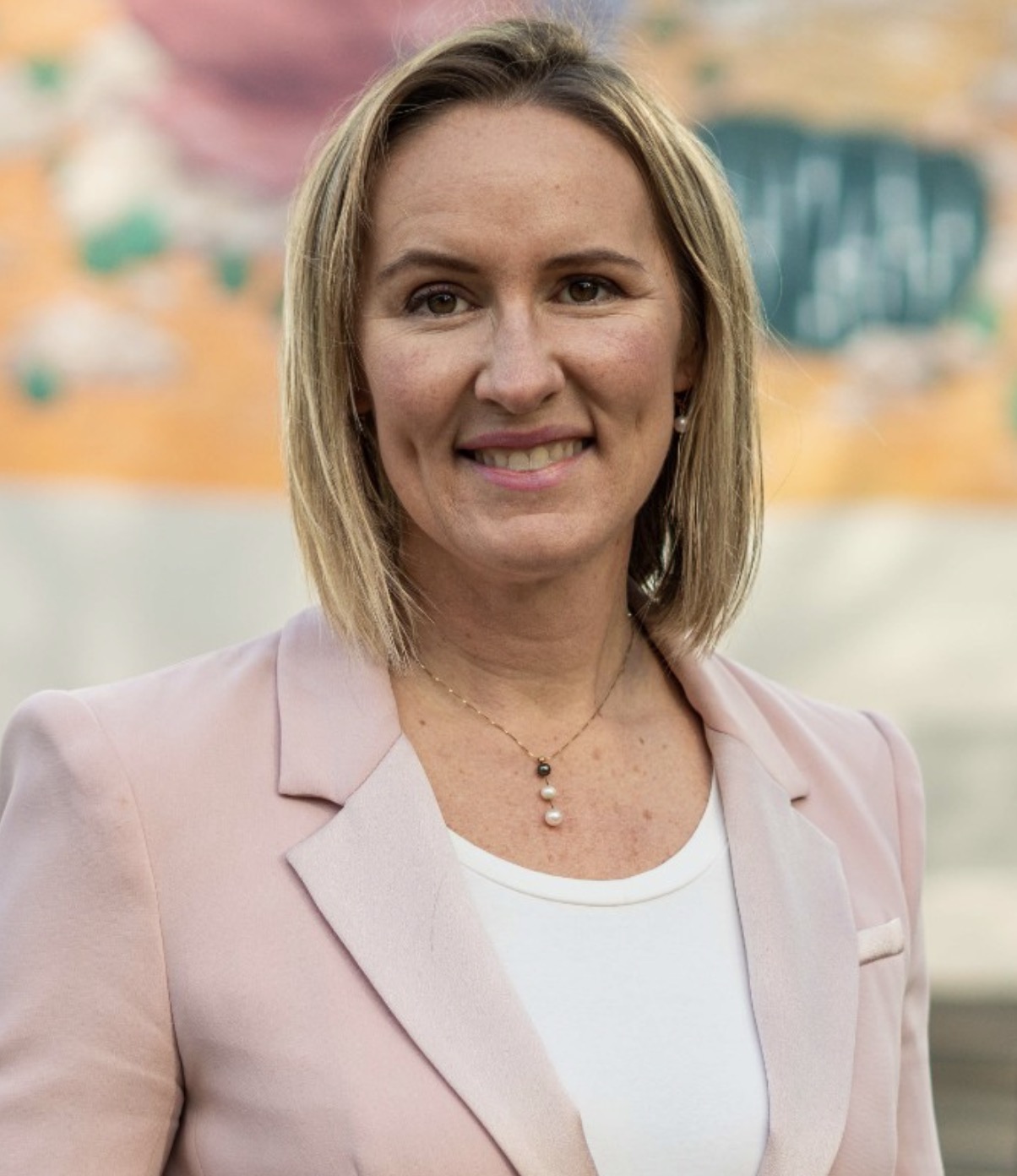
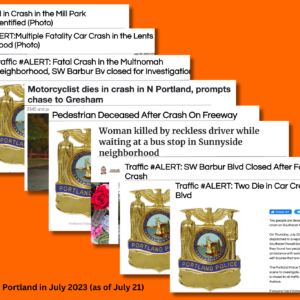
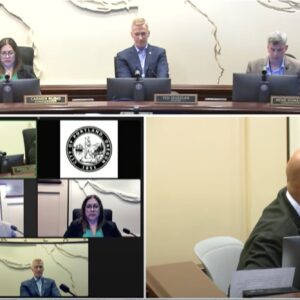
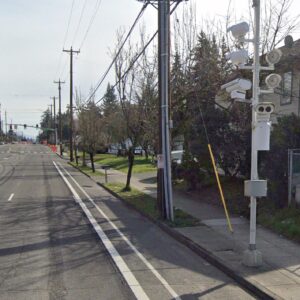

Thanks for reading.
BikePortland has served this community with independent community journalism since 2005. We rely on subscriptions from readers like you to survive. Your financial support is vital in keeping this valuable resource alive and well.
Please subscribe today to strengthen and expand our work.
I’ve been living in the Utrecht, Netherlands for the past 6 months.
You know what? People who drive here can be dangerous jerks too: They speed, drive impaired, show off their cars, get distracted. There are no signs telling them to “Slow the Flock Down”.
But there is a difference, and the difference is why there’s a traffic fatality rate of less than 20% of Portland’s. Streets are engineered to force people in cars to go slower and pay attention. There are fewer car lanes, and those lanes are narrower. Car traffic is diverted around areas where there are many people walking, biking, and riding transit — like schools and shopping streets.
Reconfiguring streets to be slower and narrower, and diverting people in cars so they rarely enter areas full of people out of cars can be expensive — especially if you want beautiful mature, paved, tree-lined streets that still allow for multiple lanes of car traffic.
But safe people streets can also be done quickly and cheaply if we decide to elect decision-makers who are willing to step back, be imaginative, listen, and take a look at how quickly and inexpensively cities around the world have controlled car traffic to ring roads and slow neighborhood streets. It takes courage to be the first city in the US to stand up to people in cars and make those quick changes. The 40% of us who already get around without cars will be very grateful.
But our infrastructure in Portland has not gotten worse (if anything it’s a little better) and traffic related injuries and deaths are setting records. It’s not just bad infrastructure that is the problem. It’s the lawlessness (drunk driving, speeding, license plates optional, street racing, camping next to high speed roads, etc) that has been allowed and/or enabled. I’m all for better infrastructure but let’s be honest, we don’t have decades to wait for infrastructure to be improved. We need improvements in driver education and consequences for bad behavior. This means enforcement of our laws meant to safeguard the community.
You’re right that traffic fatalities haven’t gone up because of worse infrastructure. However, better infrastructure could help reduce our traffic fatalities regardless.
One way to deal with an increase in speeding is to make it more difficult to speed, you know? Infrastructure improvements can do that.
Reducing deaths/VMT with better infrastructure will not be difficult, since ours is so bad. However, the real thing that we need to cut is miles traveled. We need to reduce driving, which will also save us on maintenance costs. Cut number of car lanes in half => cuts miles in half => half as many deaths and half as much cost.
“but how will we drive the kids to school?” should obviously solve itself by the vast majority of children walking or biking on their own. Traffic Evaporation happens. Lots of mobility needs would be easier if the system didn’t cow people into cars. But if Portlanders want better transit they better own it instead of taking whatever the governor gives us for a transit board and highway commission.
Do Portlanders want better transit? And are they willing to pay for it? I’m sure some want it, but I’ve seen no evidence that this is a widespread desire.
Really… *Laughs in disabled”
Do Portlanders want potholes fixed? Most importantly, *do they want to pay for it?*
“Infrastructure improvements can do that”
We should continue improving our infrastructure, a project that will take many decades. In the meantime, we need to attend to the lawless driving now.
It’s not either/or, it’s both/and.
Traffic deaths in Portland and Oregon are not record setting, but more of a return to pre 2008-recesion levels
https://www.iihs.org/topics/fatality-statistics/detail/yearly-snapshot
trends atbthat link are national but same.holds true for Oregon where we experiences the fewest deaths in 2012-2013 time frame.
things have changes for sure like like vehicle size, poly substance, speeding, enforcement and yea the roads have seen safety improvements.but not systematically across the system and moat of the system.looks as it did 10-20 years ago.
we need.to do all the things and no one thing will get us there. i encourage readers who are single issue pushers to consider just one.other factor before they post. That said i am partial to road design becauae public agencies have direct control over thw design/operation and it can impact all travelers.
These people with courage do not materialize out of thin air. In the Netherlands and other European nations they were elected when green-left coalitions overthrew centrist governments. Unfortunately both politics and cycling advocacy are moving rightward in this reactionary city. for example, the so-called “grass roots” nonprofit, BikeLoudPDX, now makes the Sadowsky era BTA look radical.
What power are you thinking that BikeLoud has? Do you imagine there has people on the council? Have Wheeler’s ear or what? Maybe you think they got Mapps & Gonzales elected? If you’re unhappy with BikeLoud, you could always join them.
“But safe people streets can also be done quickly and cheaply if we decide to elect decision-makers who are willing to step back, be imaginative, listen, and take a look at how quickly and inexpensively cities around the world have controlled car traffic to ring roads and slow neighborhood streets.”
Thanks Cathy. Yes, streets can be changed overnight with cheap, basic materials and signs. Bogota has used whatever materials it has on hand to separate modes and build a network to make a more efficient, equitable, and safer transportation system with very limited funds.
People will say, “But Portland has built so much!” Yes, Portland has invested in some infrastructure, but in a manner that: 1) Has not been in a coordinated manner to expand a separated bike network 2) Has had very little effect on narrowing and calming the main arterials or “high crash network.” and most importantly as you pointed out Cathy is virtually devoid of 3) demonstrations, pilots, and interim designs to obtain buy-in and quick, measurable effects.
All of these require both leaders in the city council as well as in PBOT who are willing to take the initiative. PBOT is asking for money to continue the status quo. Tell them that is not enough.
Stop focusing on gangs. Start focusing on traffic.
Maybe we shouldn’t have police cover both. The problems seem pretty different and both pretty important. The number of both gun deaths (which aren’t all gang related, but gang issues in general are important) and traffic deaths are pretty similar in the US. Does it really make sense to have this under 1 umbrella organization? They really do seem like two completely different problems.
Are you saying we need two police forces, like Italy?
LOL. As you know we need to do both.
But we have limited resources to do both well. If we had 300 more cops, maybe we could have the luxury of focusing on both.
VZ Action plan from 2016
“57% of fatal crashes are on 8% of Portland Streets.”
2022 VZ report
“While High Crash Network streets account for only 8% of Portland streets, in 2022 they accounted for 70% of deadly crashes.”
Here is the yearly budget for PBOT for the last 5 years.
Here is a cheap way to redesign streets for many phases, not just in one big capital project as PBOT normally works. Remind PBOT that streets are mutable:
1) demonstration, 2) pilot, 3) interim design 4) capital project. Skipping the first 3 makes people scared and act dumb.
Finally, ask Mapps to do this. Tell him and PBOT that the status quo is not working, and it’s not because of budget reasons. Ask him for a plan for a separated bike network. Ask him for plans for demonstrations, pilots and interim designs while we wait for all the capital projects. Tell them you will donate your time and your planters because there are so many people out there that are willing to do the work if PBOT just lets them.
I agree. Best idea I’ve heard (which I think I read hear years ago) was to guarantee that the pilot would be removed after 6 months, and stick to it so folks would know that the pilot wasn’t a way to sneak a half-baked project through the system.
It’s a lot easier to discuss a project when everyone can see what its impacts are rather than have everyone react based on their worst fears about what the project might do (but probably won’t).
An entire department of PBOT should be dedicated to just that: pilots. If they want buy-in and support, show people how it works.
He’s right. One more thing PBOT should do: task parking enforcement officers with ticketing cars lacking license plates, which are illegal to operate and have no business on our streets. Report them for towing, too, to remove these dangerously driven, accountability-skirting hazards.
Same thing for the ubiquitous license plate covers that make it impossible to reliably ID dangerous drivers.
I agree, Luke, Those plate covers are on some of the high-end cars, like Teslas. Start busting those drivers and towing those cars.
They can’t if it looks to be someone’s domicile. However, once moving, plateless cars are more likely to be stolen or unregistered, and should be fair game. Still difficult, as they just have to say they needed to run for food or something, but better than nothing.
Doesn’t matter if it’s one domicile or not. That was just the PBOT policy under Eudaly and Hardesty that helped get us into this mess.
And enabled by Kate Brown, who extended a COVID era license plate enforcement moratorium until *2022*.
Sorry, this sounds like a “not my problem” statement.
What would PBOT do under Mapps direction if they had money?
The same half measures and compromises that they have done with most projects over the last 20 years out of fear that drivers will complain.
Yes, there are system issues that make it difficult for PBOT, but they have not positioned themselves to be transformative.
I mean, he’s not wrong about enforcement but we have a mayor that has lost complete control of his police force, and a police department that has been on on an unofficial strike for the last 3 years. Who is going to be the person that gets PPB back to work?
How do you know the police are “on strike” and not just woefully short staffed?
I work daily w/PPB officers. It’s both.
The staffing situation was entirely predictable. 25-30 years ago, PPB was also short on officers. They went on a big hiring spree to fill the ranks. Those officers are now hitting 25 years and eligibility for retirement. Many of those officers have retired from PPB and gone on to work for other agencies while collecting a very generous pension on top of their current paychecks. This was happening prior to 2020 and BLM and Covid. The remaining officers resent the people of Portland and see us as the enemy for the most part. They are angry that they aren’t getting the help they expect and need. On that point, I don’t entirely blame them. PPB leadership has done this to themselves. They set up the officer shortage by, once again, not looking forward and anticipating the wave of retirements. That existing shortage was exacerbated by the events of 2020. The attitude displayed by the agency made them appear to be a very toxic place to work.
Short of wiping the slate clean by firing everyone from the chief on down and starting from scratch, I don’t know what the solution is.
I can’t blame people for not wanting to be associated with PPB.
“The remaining officers resent the people of Portland and see us as the enemy for the most part.”
That’s a huge generalization. The few times I have dealt with PPB officers they have been courteous and helpful.
To be fair, that might be selection bias.
My understanding is that some of the shortage of officers can be attributed to delays in training slots at the state level.
Because if you say it enough times in circles that want to believe it, it becomes true.
He hasn’t lost control of them. They are doing exactly what he wants them to do.
What in his powers as mayor can he do to change things at PPB?
Well, for one the Mayor could reverse his orders from the early months of Covid for PPB to stop doing traffic stops. At least AFAIK I’ve not seen him come out publicly to reverse those orders at all.
He *is* still the police commissioner, isn’t he…
For someone trying to run for mayor, Commissioner Mapps sure seems to be doing a lot lately to make me rank him quite low on the ballot. This is nothing but obfuscation and finger pointing.
Maybe he’s just injecting realism into the conversation? I like the straight talk from a leader not the “empty words” we typically hear from people like Wheeler.
Because a realist wouldn’t just shift blame to another commissioner’s bureau (a commissioner he happens to be running against). Yes, law enforcement is part of the puzzle, but there are things PBOT can do and should have been doing that Mr. Maps is just completely ignoring because he doesn’t want to admit that he’s part of the problem and making intentional decisions to prioritize other projects over human safety.
Is there any specific decision you can reasonably attribute to Mapps that demonstrates his lack of a reasonable focus on safety?
I have to say I agree with Mapps here: PBOT can’t do much about the immediate crisis – only PPB can. That is, the police need to find whatever resources they can come up with to start pulling over the out-of-control drivers.
We who ride bikes know how out of control many drivers are at this moment. They are a danger to themselves and to others, and they need to be pulled over and cited and towed and have their driver’s licenses taken away.
Over time PBOT can work toward safer infrastructure but it will take a while. For now we are stuck with the terrible street infrastructure we have.
“We who ride bikes know how out of control many drivers are at this moment. They are a danger to themselves and to others, and they need to be pulled over and cited and towed and have their driver’s licenses taken away.”
Fred’s ideas here represent the popular view of traffic enforcement, and typically how most cities enforce laws in the US for the last century. If only we penalized those out of control drivers enough, then… something will happen. If only we had enough money. Unfortunately, we are just stuck with what we have.
Both of these premises are false. Yes, Mapps is correct that speed cameras are effective at reducing crashes (study, report). That’s promising he recognizes this. Speed cameras have been very effective at reducing crashes around school zones in NYC, for example. But the random enforcement provided by police bureaus are generally not very effective at consistently reducing crashes (study, study).
As for street infrastructure Fred is correct that capital projects are costly. That is what PBOT talks about when it says, “It is safe to say that a reconstruction of the [Caesar Chavez] corridor would be a significant project in the order of $50 million.” That’s true. The problem with that thinking is it ignores short term, interim, cheap demonstrations that can be effective at 1) recognizing and showing the public there is a problem, and 2) redesigning a place without the time, community board approvals and vast amounts of money involved in capital projects. PBOT’s “Quick Build” program is not quick. It’s just cheaper capital projects. They don’t really have a quick build program, nor do they have any way to engage the community with temporary projects that show the benefits of future capital projects. Please tell them to do that.
Is it your conclusion that the police should not enforce traffic laws? If a cop sees someone driving like crazy, should they do anything?
Hey Watts. Good questions. Certainly not for both questions. Police have a central role in safety.
Let’s ignore the research above for a second and just think about it in behaviorist terms. What is the most successful means of changing people’s behavior? Why is gambling (and some video games) so successful, for example? Both of these work on a Variable Ratio schedule. That is, reinforcement happens after an unpredictable number or responses.
Our traditional traffic enforcement system does not work on that schedule. In the real world, if a person speeds 1000 times and is stopped by a police officer once, the likelihood of them changing their behavior is low.
Let’s say we have speed cameras. If a person speeds 10 times and is sent a ticket in the mail for one of those, the likelihood is a lot higher they will change their behavior. If the location of these cameras change randomly, that reinforcement schedule dramatically increases. That’s why speed cameras are so much more effective than an actual policeman stopping a person. Invariably, speed cameras show a graph (pg. 19) of high number of speeders tapering off as people adjust their behavior.
I think you are staking out a very radical position, but I appreciate your willingness to own it.
It’s hard for me to understand how traffic cameras can be designed to catch drunk drivers or people who have obscured their license plates (or are driving without), or could catch people driving without a license or insurance, or could plausibly be deployed everywhere it would be dangerous for someone to speed or run a red light, but hopefully that’s something the boffins at PBOT can figure out.
Meanwhile, I rest somewhat assured that if a cop sees someone driving erratically or dangerously, there’s at least a chance they’ll take action. Every drunk driver they catch is one less that can kill someone.
Sorry, misread. Police should enforce traffic laws and yes if someone is “driving like crazy”, they can/should do something. My point is it’s generally less effective than automated enforcement.
Ah great point. This is a huge problem on the East Coast. Perhaps you’ve heard of ghost tags, Obscured plates? Luckily, recidivist drivers need only be caught a handful of times (depending on the state) to be either booted, towed and/or given a mandatory class. The boffins have the data, it’s mainly just the politicians who aren’t so into getting caught driving unsafely. But certainly police have a role in investigating ghost tags, obscured plates, etc.
There are a lot of “what ifs” that people like to bring up who aren’t familiar with speed cameras. A good one I like it “What if I’m on a highway and I have to go over the speed limit to pass someone?” In a few countries speed cameras take the average speed over x distance.
It sounds like you do in fact believe that manual enforcement is worthwhile, and can reduce crashes, despite what the studies you cited purport to show.
I think a better way of putting it automated and in-person enforcement are complimentary. There is a need for both.
If you agree with that formulation, then we essentially agree on the enforcement issue.
Sure complimentary. Agreed.
I guess I would refer you back to the main point Fred suggested: “I have to say I agree with Mapps here: PBOT can’t do much about the immediate crisis – only PPB can.”
This is patently false. There is a massive amount of immediate and substantive ways PBOT can affect streets that would improve safety (e.g. temporary barriers, painted sneckdown areas, pilots, daylighting, etc.). Relying solely on police enforcement doesn’t work. And pretending a budget crisis is the reason for decades of failed policy is equally flawed.
We are not “stuck with what we have.” We are stuck with what we are complacent having.
If you were PBOT director for a day, how would you use these tools to improve the situation on a street like 39th, to help ensure a drunk driver did not kill another person on the sidewalk?
We are getting exactly the government we deserve in Portland.
What does that even mean, PeeWee? I mean besides you being angry.
It means our city and county government reflects the leaders WE elect.
Yup. Focused on aspirational issues instead of running an actual municipality.
Speak for yourself. I didn’t Vote for them, and neither did most of the people I know.
Why does statement is make me want to beat my head against a wall?
Yes. And? They know what has to be done. They just seem to be unwilling or unable to put their money where their mouths are.
The “we would, but we can’t afford it” argument seems to be made in bad faith. I understand that budgets are limited, but ultimately its a priorities decision. I feel like Ms. Carney put out an arbitrary large number expecting the reader to say, “well I suppose you’re right, that’s a lot of money, lets not do anything then.” I wish I could hop in a time machine, show her/Mapps a mother of two waiting at a bus stop, a drunk driver speeding toward her, and ask “how much are you willing to spend to prevent this from happening?”
Heck, even the U.S. DoT has numbers for how much a life costs. Actuarial statistics offer little comfort to grieving families, but can at least help call out bad faith arguments from our elected officials. By spitting out $50M, is PBOT asking us to talk to them again after another three people die on Cesar Chavez? https://www.transportation.gov/office-policy/transportation-policy/revised-departmental-guidance-on-valuation-of-a-statistical-life-in-economic-analysis
That seems like a whole lot of words that boil down to: “We aren’t going to do a thing to fix this.”
The problem with the current form of Portland government in a nutshell: commissioner Mapps is the “Commissioner in charge of the Portland Bureau of Transportation” yet he acts like he’s some sort of liaison who can merely voice his concern to PBOT. PBOT on the other hand tells us to direct our outrage at City Hall. See the problem here?
It seems pretty obvious that Mapps only interest in PBOT is managing it to the extent that it does not jeopardize his future political ambitions. He didn’t seek a council position to be “in charge” of PBOT. With the pending changes in council, his motivation to make progress with PBOT is even less, and probably PBOT leadership is not interest in his ideas.
PBOT’s defensive position for decades has been “we can’t do anything in response to deadly road conditions, because projects are too expensive and slow to implement.” If they let go of this excuse and started responding in a meaningful way, it would become clear that they are partly responsible for all of these deaths and they would have to respond to future deaths and demands for change.
Okay, but how much to simply restripe it to 3 lanes and time the traffic lights for 25 mph?
$3 per foot to remove 4 inch striping. $1 per foot to install 4 inch striping. $5k per signal to modify timing ( if possible). $500k minimum to replace a signal. $50k to reconfigure Coe circle to a roundabout.
One lane moves about 1,300 cars per hour. Chavez has under 1k at peak hours.
VZ isn’t free. 50 million in today dollars that will be 70-80 million when the wonks talk about what the corridor could look like is obviously isn’t free. Last time I checked PBOT doesn’t have any money which is why project like the 92nd one that was just posted this week could be considered wasteful spending. If Caesar Chavez is as dangerous as we would like for it to be then maybe we need to make many, many small project along it to move the needle. I’m sure traffic counts on CC is 100 fold more than it will ever be on SE 92nd. So yes, in our complaint driven city, these complaints are probably valid. Also, enforcement is something that we actually have but like I saw the other day, running reds in front of cops doesn’t necessarily mean you will get a ticket. Hence why I yelled a profanity at the red running vehicle.
Rather than spend $75 billion for supporting a war in Ukraine/Russia, divert those funds to building and creating sidewalks, bike lanes and a safer infrastructure for those of us here in America. Once the war is finally at an end, the US government will completely rebuilt Ukraine to higher standards than what we have here.
Cops do not prevent crime.
They solve 8% of investigations.
They suck resources and are unaccountable.
Arresting habitual criminals is preventing crime.
That just makes no sense. Would one rob a bank with a cop in front of it? No, because there would be a high chance of consequences. Saying cops don’t prevent crime seems to be a “taking point” of the defund law enforcement folx and IMO not helpful in restoring public safety and livability to Portland.
If this were true, we could save a lot of money by getting rid of the police altogether. We could live in a nationwide CHAZ, which would be a lot better.
Admittedly, it did take a couple of days before people started shooting each other, so I guess it could work.
Absurd response. Either Mapps is completely clueless about the history of enforcement and transportation in this city (and other cities throughout the world) or this is just an excuse to waste more money on police. When Engineers tell you safety will be expensive, tell them to bring some other options or find a new job. Nothing about the status-quo of packing cars onto every inch of our public space is cheap.
You think we can’t put stuff in the way of speeding cars because drivers will cry? Come on, all we need is for like 10% of the bored amateurs to switch to some other mode than driving 1/2 mile to get their bag of milk. Stop it with the obsession over capital projects that won’t break ground for 10yrs and actually go to work on the streets we have.
https://www.youtube.com/watch?v=d8RRE2rDw4k
No — you can’t put stuff in the way of speeding cars because lawyers will sue, and you’ll probably lose your license to practice engineering.
You take things very literally, don’t you?